This blog was written by Kiki James, CEO, ACE Charity Africa.
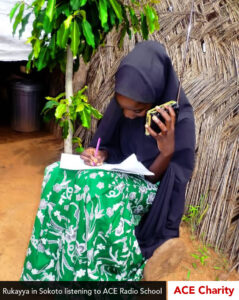 When the COVID-19 pandemic hit a year ago, it was easy for us to shift gears from our daily activities at Assisting Caring & Empowering (ACE) Africans Charity to running the ACE Radio School for seven months in 2020. ACE Charity’s mission is to support development in Africa through access to quality education, seeing that Africans are educated beyond basic level through our Learning Resource Centres and our radio school. In 2019, we began discussing the significance of radio schools in Northern Nigeria among our team which we believe to be one of the safest and fastest ways to educate children, especially girls. We informed one of our donors and asked for permission to use our grant as a response to education in emergency since we could no longer operate as normal, and Malala Fund agreed.
When the COVID-19 pandemic hit a year ago, it was easy for us to shift gears from our daily activities at Assisting Caring & Empowering (ACE) Africans Charity to running the ACE Radio School for seven months in 2020. ACE Charity’s mission is to support development in Africa through access to quality education, seeing that Africans are educated beyond basic level through our Learning Resource Centres and our radio school. In 2019, we began discussing the significance of radio schools in Northern Nigeria among our team which we believe to be one of the safest and fastest ways to educate children, especially girls. We informed one of our donors and asked for permission to use our grant as a response to education in emergency since we could no longer operate as normal, and Malala Fund agreed.
Knowing the huge digital divide in Nigeria, we knew our ACE Radio School would bridge the educational gap for children in public schools (government schools) where they do not have access to online learning. We decided to focus on states with higher poverty and illiteracy rates in the seven months of airing. The ACE Radio School programme broadcasted in nine Northern states and seven major communities. The episodes broadcasted three times a week – Mondays, Wednesdays and Fridays – with primary and secondary school episodes aired alternatively, in line with the Nigerian curriculum. Instructional materials used resources from the ACE Charity Learning Resource Centres. The radio episodes were also translated into local languages (Hausa and Fulfude) to effectively engage a wider group of target beneficiaries.
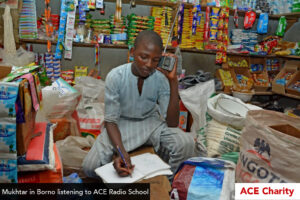 Despite the general barriers which have been identified to hinder access to quality education in the country, including poverty, religion and cultural factors, our data shows a high level of receptiveness to the ACE Radio School, which indicates Northern parents want their children to be educated. Base, mid- and end-line assessments are conducted for the radio school. Eight weeks into airing, there were 358 calls and text messages from listeners. The majority (65%) of the responses received were text messages, 12% were received calls and 23% were dropped calls. Listeners’ satisfaction analysis showed more than half (54.8%) of the respondents were female, while males constituted 45.8% of the respondents. At 20 weeks there were 1,888 calls and text messages received from listeners in August 2020, indicating increased listenership and participation for both primary and secondary school students. In 2021, we still have high listener engagement in the North-east, even with schools reopening, thanks to Grundfos Foundation.
Despite the general barriers which have been identified to hinder access to quality education in the country, including poverty, religion and cultural factors, our data shows a high level of receptiveness to the ACE Radio School, which indicates Northern parents want their children to be educated. Base, mid- and end-line assessments are conducted for the radio school. Eight weeks into airing, there were 358 calls and text messages from listeners. The majority (65%) of the responses received were text messages, 12% were received calls and 23% were dropped calls. Listeners’ satisfaction analysis showed more than half (54.8%) of the respondents were female, while males constituted 45.8% of the respondents. At 20 weeks there were 1,888 calls and text messages received from listeners in August 2020, indicating increased listenership and participation for both primary and secondary school students. In 2021, we still have high listener engagement in the North-east, even with schools reopening, thanks to Grundfos Foundation.
The current narrative in North-eastern states denotes insurgency as a major barrier to learning, however, through ACE Charity we have seen an increased appetite for learning – which proves that access, quality of education, affordability, language translation and safety are arguably greater barriers to education in Northern Nigeria. Using practical learning, differentiation, repetition, storytelling and rhymes, we were able to give private school education to public school children using private school teachers to deliver each radio episode.
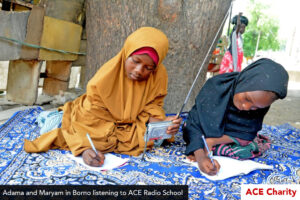 Convinced as I am that our ACE Charity Learning Resource Centres are integral to the Nigerian education system, the Radio School is even more significant as it provides an all-inclusive solution through teacher training, quality and arguably, equity. Further findings will provide guidance and more up-to-date information on the needed sustainable strategies to ensure inclusive education for out-of-school children, especially girls through alternative means, dispelling popular myths such as the insurgency being a major barrier to learning in North-eastern Nigeria.
Convinced as I am that our ACE Charity Learning Resource Centres are integral to the Nigerian education system, the Radio School is even more significant as it provides an all-inclusive solution through teacher training, quality and arguably, equity. Further findings will provide guidance and more up-to-date information on the needed sustainable strategies to ensure inclusive education for out-of-school children, especially girls through alternative means, dispelling popular myths such as the insurgency being a major barrier to learning in North-eastern Nigeria.

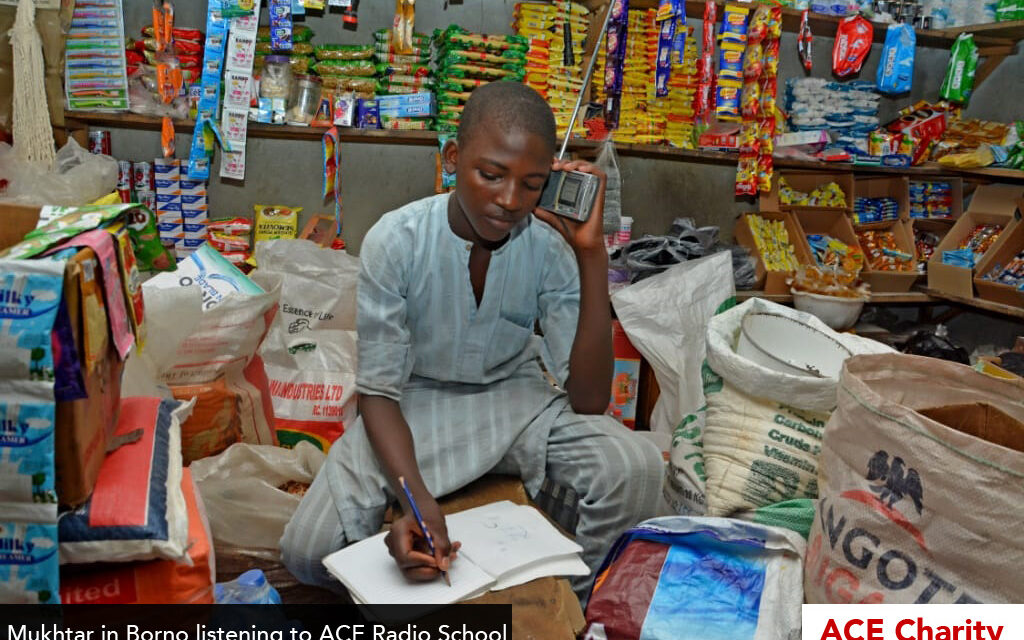
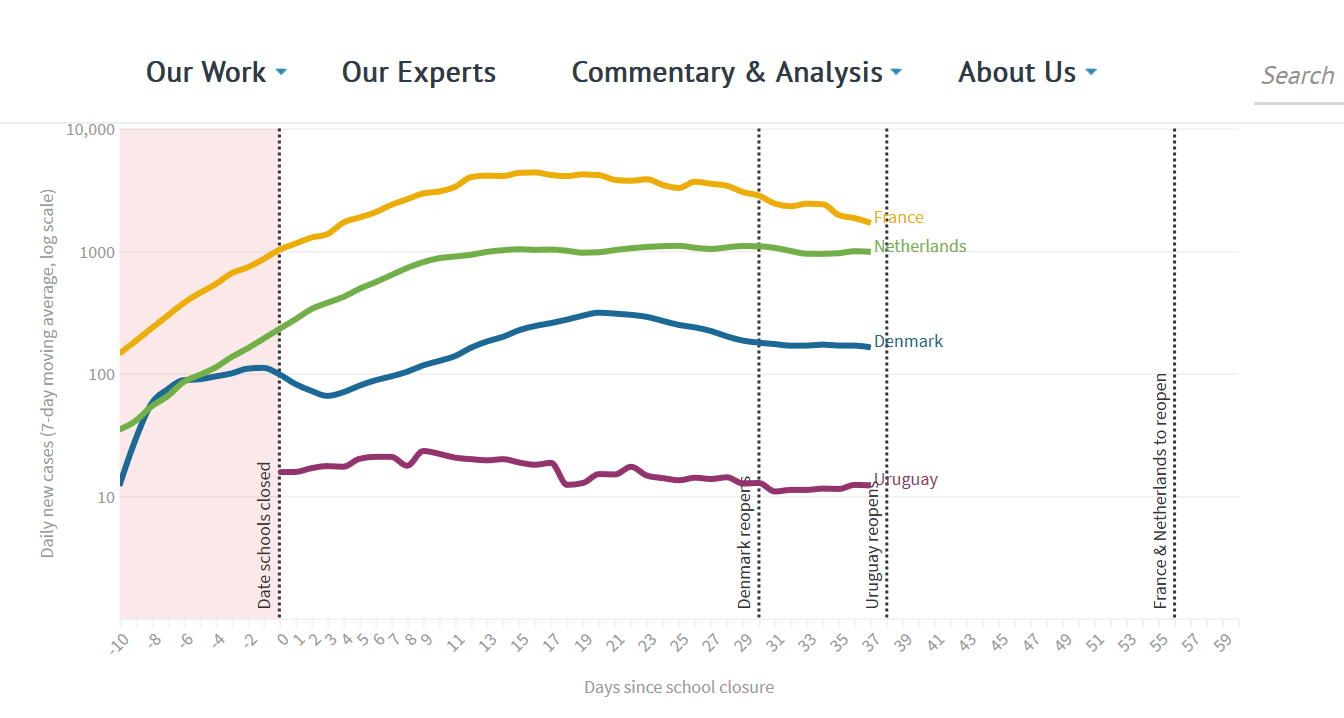
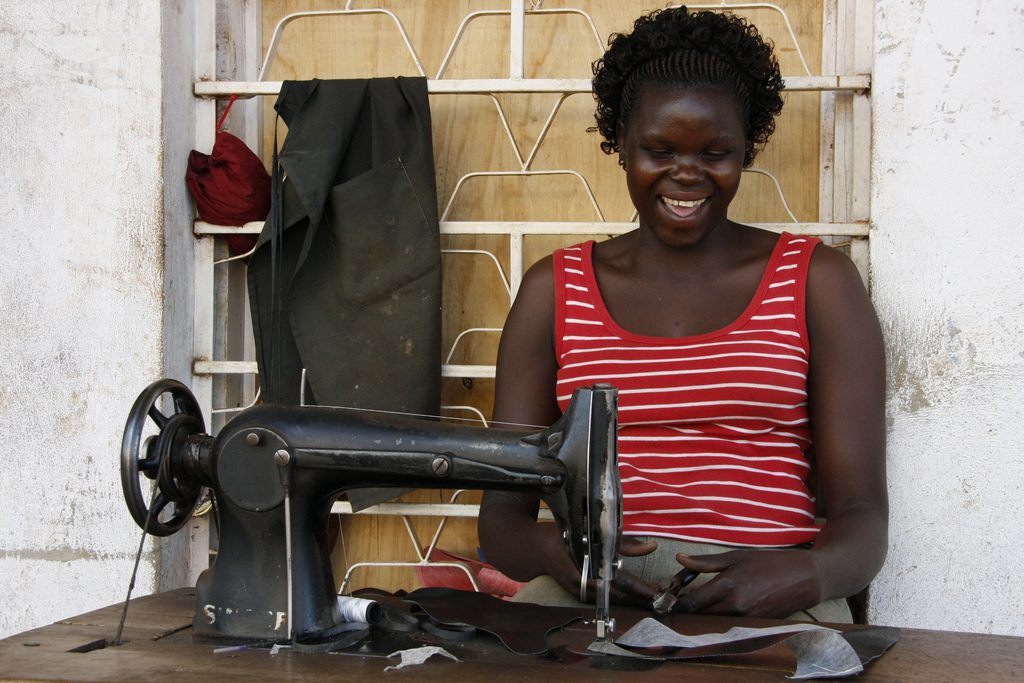
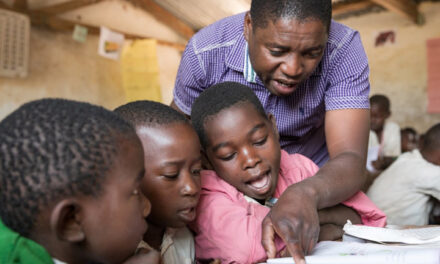
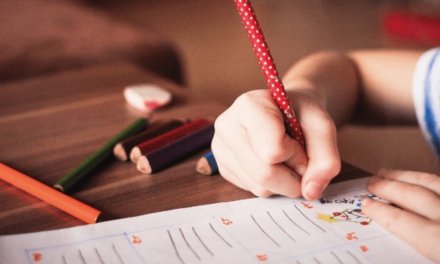
Many thanks.keep up the good work
Nice article.thanks